Last year the words homesteading in the suburbs rolled through my mind and I remember exclaiming, “That’s it! That’s what I’m doing right now.”
I hope this blog post gives you encouragement if you’re desiring an expansive plot of land with rows of vegetables, chickens roaming, and kids running barefoot through a field. Or if you’re content with your current living situation but want to elevate the hardworking, free spirit of Laura Ingalls inside your heart. There is something for both dreams in this post.
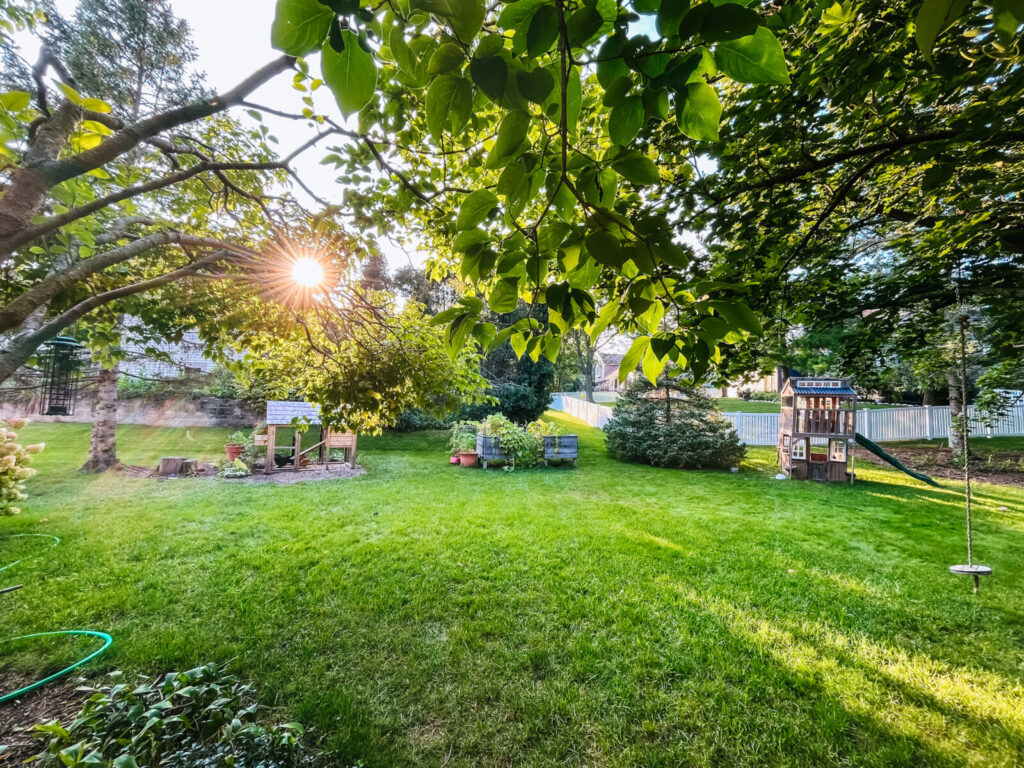
Both dreams are good and beautiful. And the season (or seasons) of waiting and saving, planning for and desiring are just as good and just as beautiful as the season of dreams coming true and living within the blessing. So wherever you fall on the homesteading spectrum, you’re in good company.
I’m a firm believer that what we are given is what we will be held responsible for, just look through Scripture. The Parable of the Talents and The Parable of The Faithful Servant both teach us about character, reveal to us God’s view of responsibility and ownership, hard work and stewardship. There is purpose in God’s timing and pursuing his plan with patience. So we don’t have to have the dream plot of land or a huge savings to be faithful or fruitful, we need to start right now, exactly where we are and with what we’ve already been given.
Where to start, because there has to be a beginning. Nothing about this lifestyle — making food from scratch or raising your own chickens — happens quickly or all at once. So let’s start with the dream and work towards practicality.
Let’s first make a list of what we could label the “ideal homesteading life” — write out a list as specific as you can, let this list run wild with your dreams, and then number it starting with the most important to you. On my list I would have something like: harvesting 1 thousands pounds of food in a summer, living on 7+ acres of land off hwy 105 in Colorado, baking several loaves of sourdough bread each week, making meals mostly from scratch, canning vegetables from our garden, eating fresh eggs from my chickens every morning, watching my daughter make bouquets from our flower garden, being generous with the first fruits of our harvest and keeping a sabbatical year where we let our land rest and allow ourselves to be surprised with what our land produces.
My list would include more, but that’s a pretty good start. And when I look at my list, the most important things to me are a vegetable garden, making sourdough and most meals from scratch, having chickens and being generous. And that’s honestly where I began several years ago and where we now are with the land we currently live on, with the finances we currently have, and the time we have to invest in our homestead in the suburbs.
My first real gardening experience was the spring we moved into our home, a little over three years ago. The previous owners had a garden box so all I really had to do was plant seeds, and our harvest that year was plentiful, we were able to be so generous! And the next spring we made our own garden boxes. My first dabble into sourdough was roughly 8 year ago so I’ve been making breads and most of our foods from scratch ever since. We got our first round of chickens this past spring. And I make it a priority (during most seasons) to make a meal or loaf of bread, or give vegetables once a week to another family or household. This process, for us, is going on almost a decade.
Right now we do all of this on .3 acres of land, with a growing family and one income. I’m telling you, it’s possible to homestead in the suburbs (or insert any living situation/stage of life you’re in).
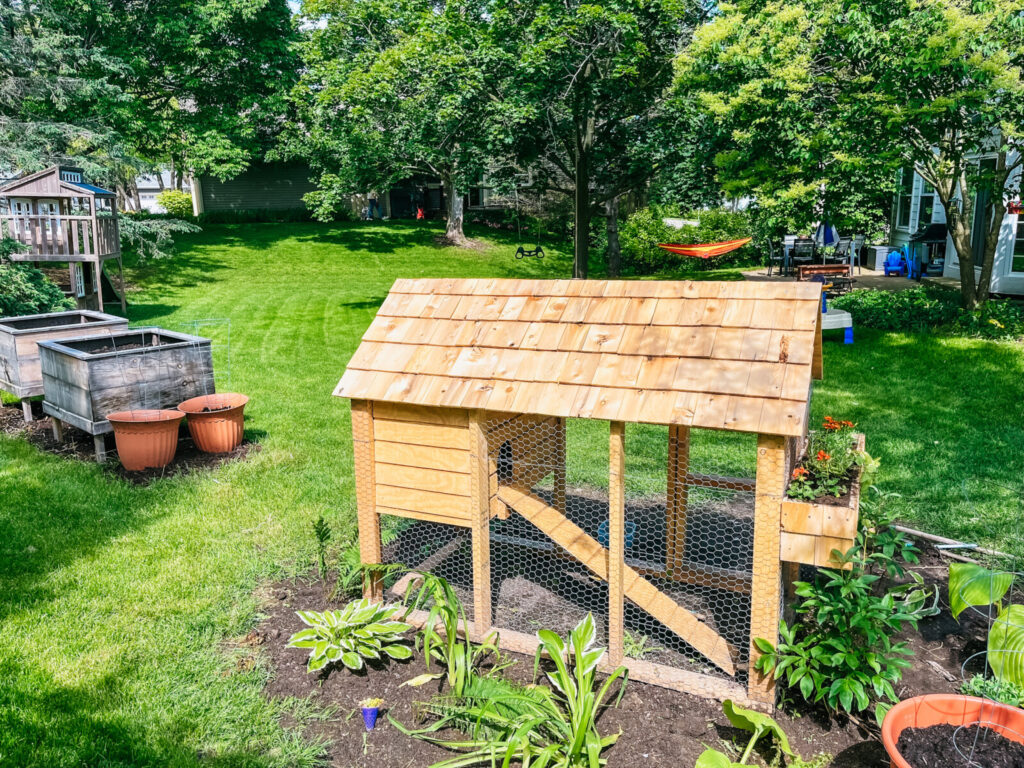
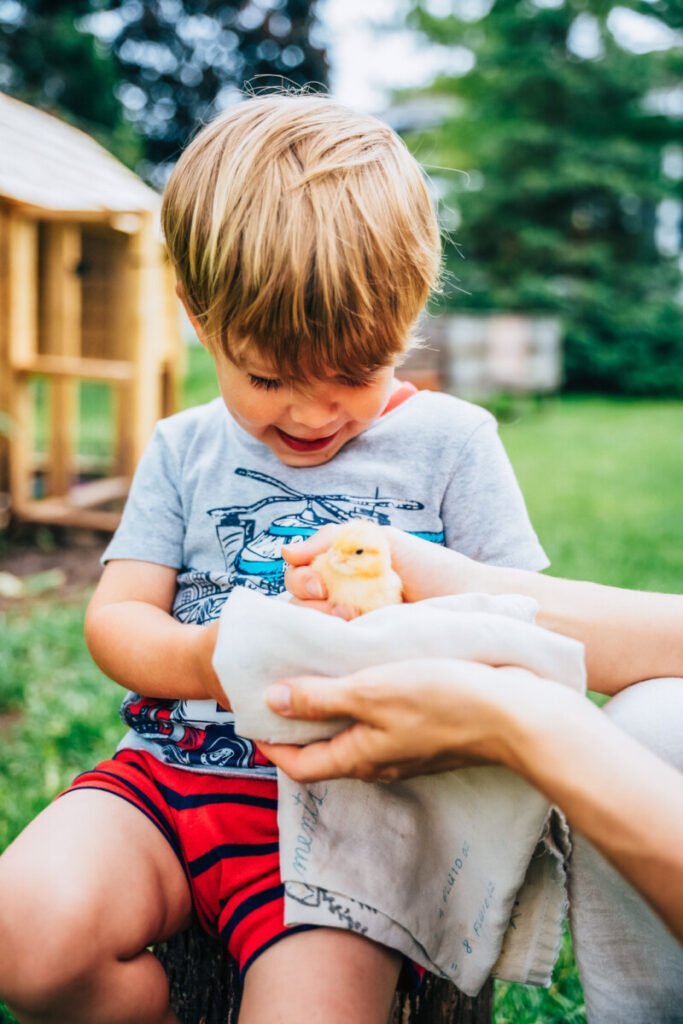
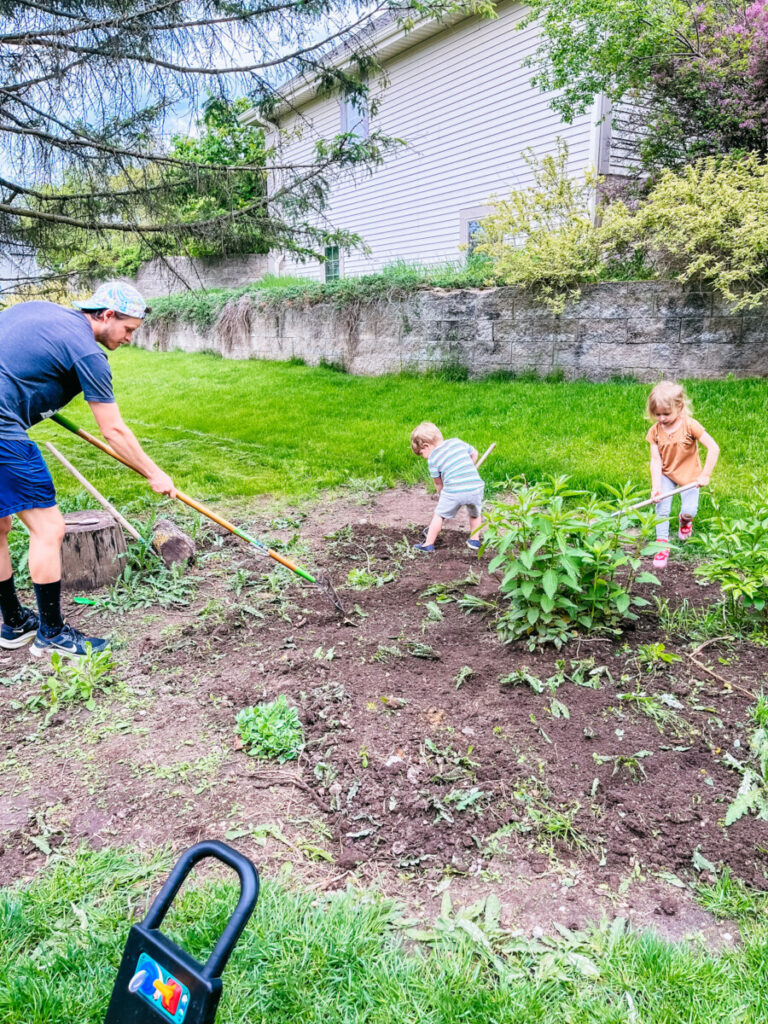
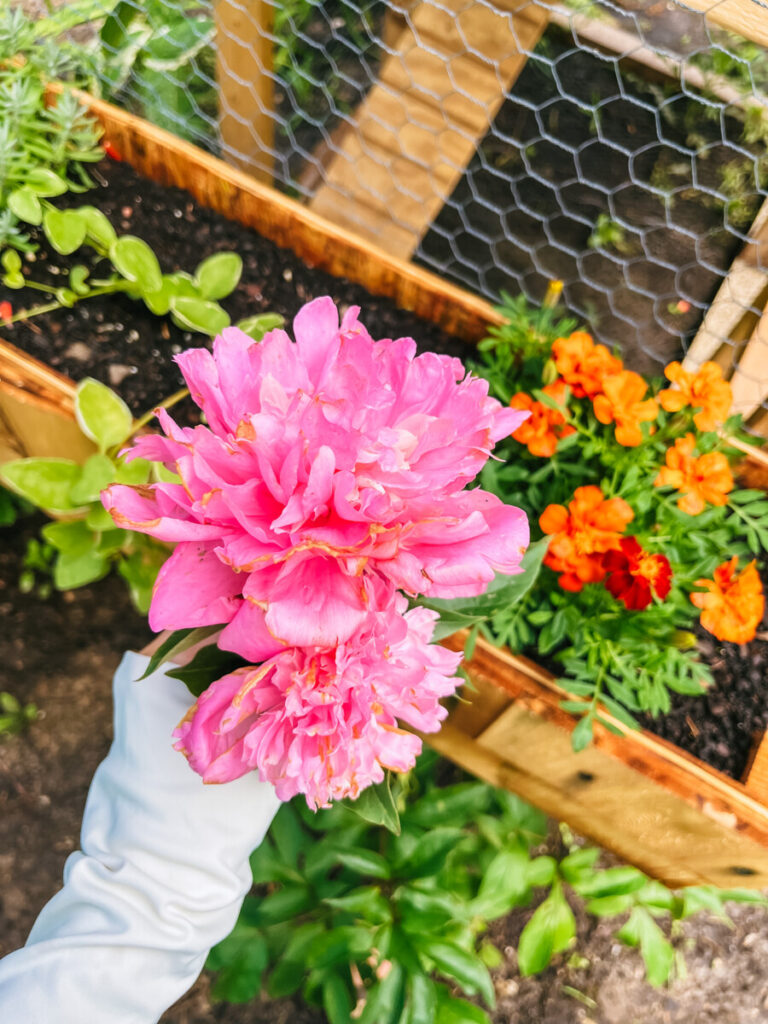
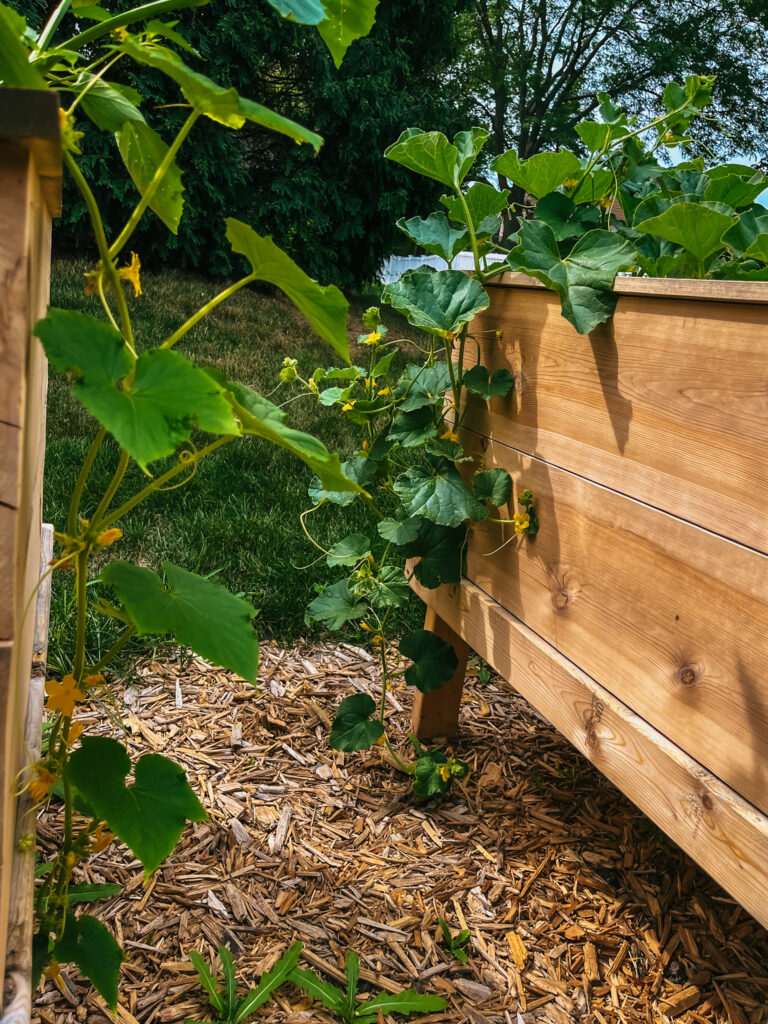
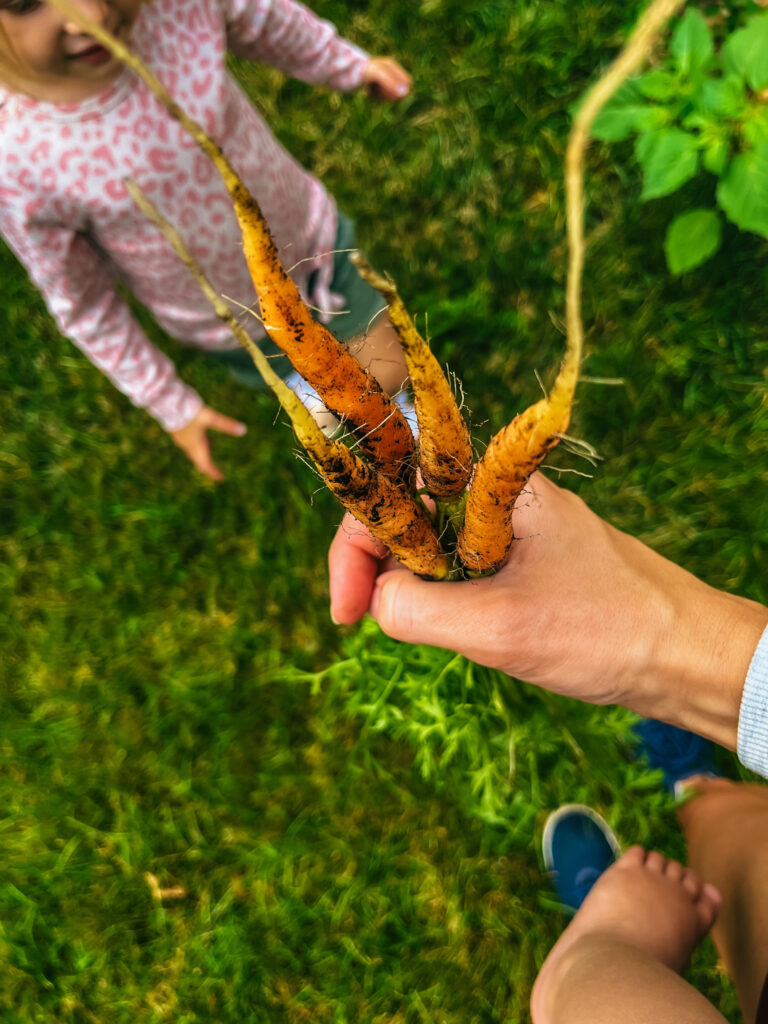
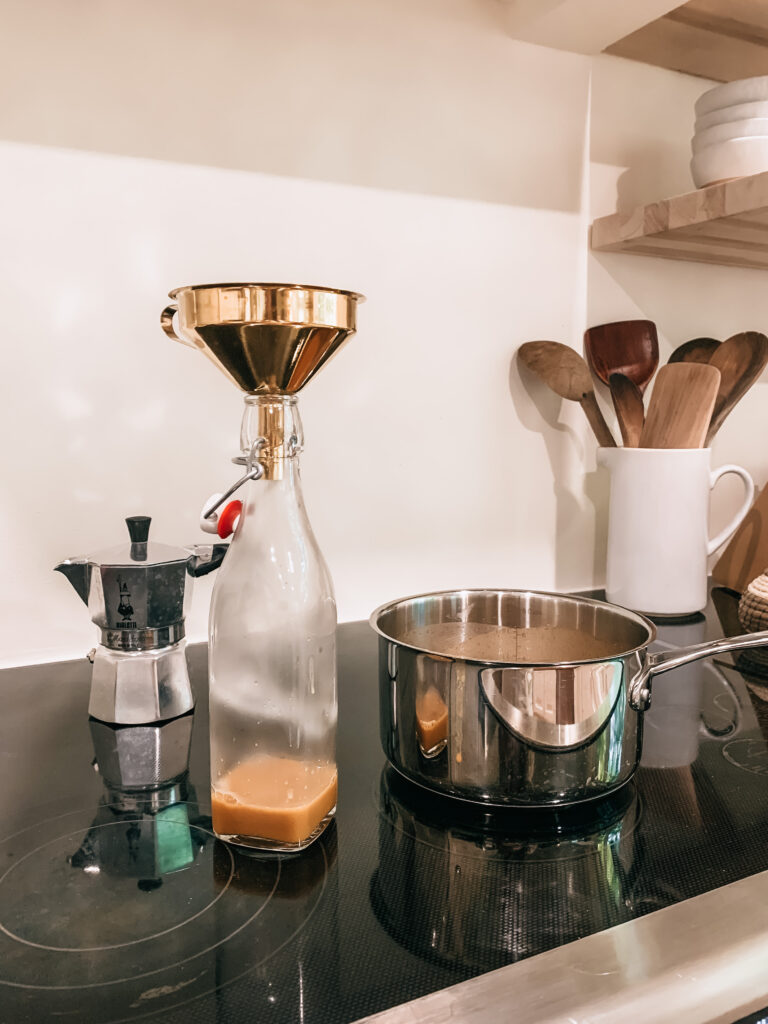
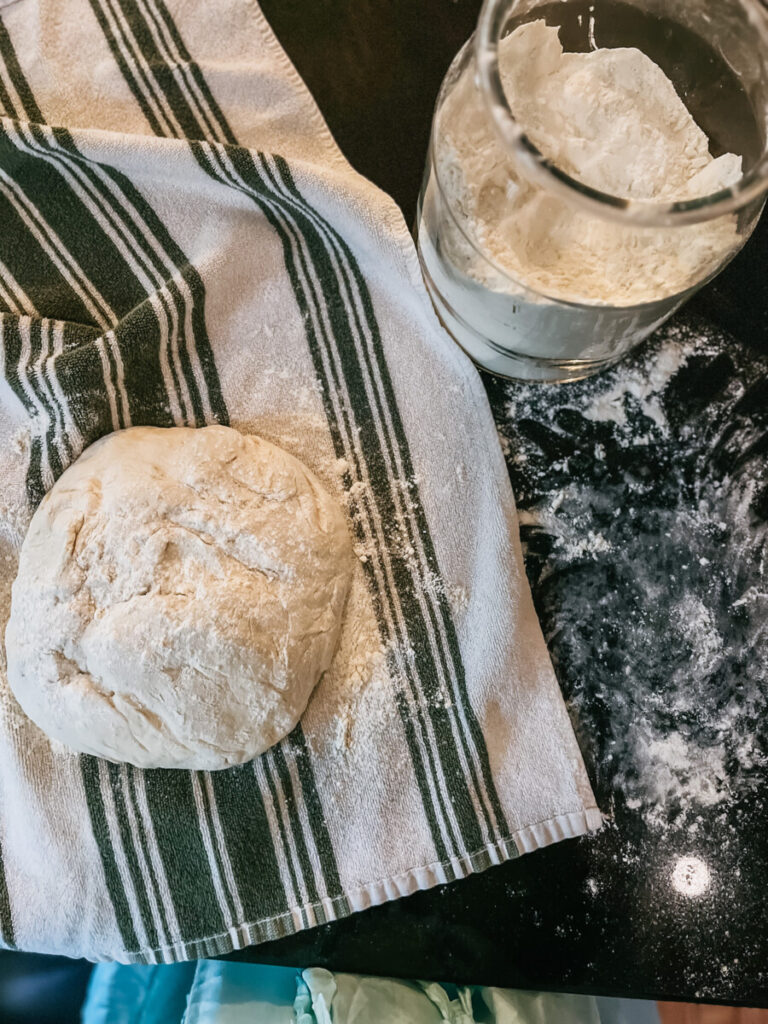
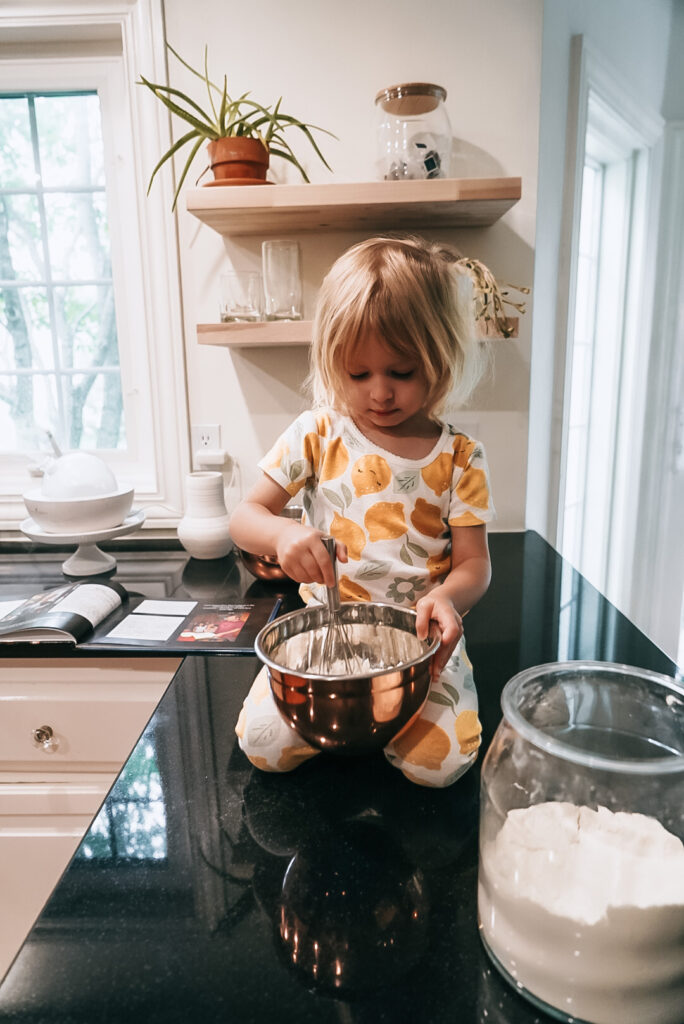
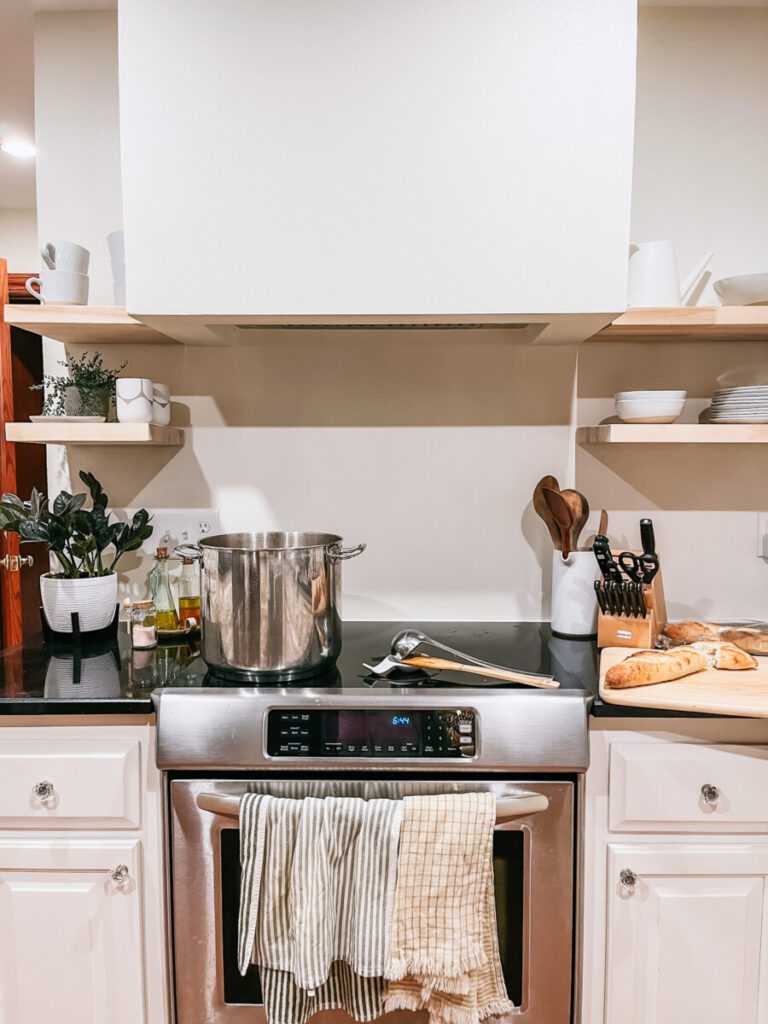
But we didn’t start with the home or small acreage. I started when I was unmarried living with roommates, kept learning into early marriage years, while living in a 600 square foot condo with no land, when we were making less than 50k/year and began having babies, through buying a home and now continuing to invest in our home while being faithful with what we currently have. We’ve grown in character, learned how God blesses those who trust in Him, learned about responsibility and stewardship.
Starting where you currently are is the best place to start. And then dream and make your list.
With your list in hand, try to sketch out a plan. The famous quote, “a goal without a plan is just a wish” is so true. This lifestyle takes sacrifice and costs money and time is needed to do this well. Chickens are not just “free eggs” — you have to build or buy a coop, feed them, buy pine shavings and straw, then there are heat lamps, water and food troughs, fencing and other materials. You need to care for them throughout the day for several weeks, slowly introduce them to changing weather and protect them from predators. Sacrifice, money and time. On the flip side, making food from scratch will save you money in the long run, although it’s an upfront investment and again, you need time to make these said meals. But all of this costs something — seeds get washed away, chickens die, you can’t control the weather or the economy. Having a plan will help when things don’t go the way you thought they would, the plan will help you stay on course with your dreams, your time and your finances.
My last little note on planning with a real life example. There should be things on your list you want to do, plan for and work towards, but there should also things you know you don’t want or want to do. For us, although we’re allllll about home (we work from home, homeschool, etc), we also love traveling, so having a cow wouldn’t work for us, it’s not part of our plan. Neither are owning a tractor, building a massive barn or having 20+ animals.
Dream and make a plan for your life, not what you think it should be or should look like. And keep working on your list and never stop dreaming. A few items that are currently on our list: flower garden for L, clothes line during spring and summer months, finishing our laundry room which will help with cleanup, continue to learn about gardening and try new things next year, begin to compost and make a few new recipes for laundry and natural housekeeping. Some of these are larger projects and will take more time and a bigger budget, while others are more simple but still require my time, so we plan differently for each item listed.
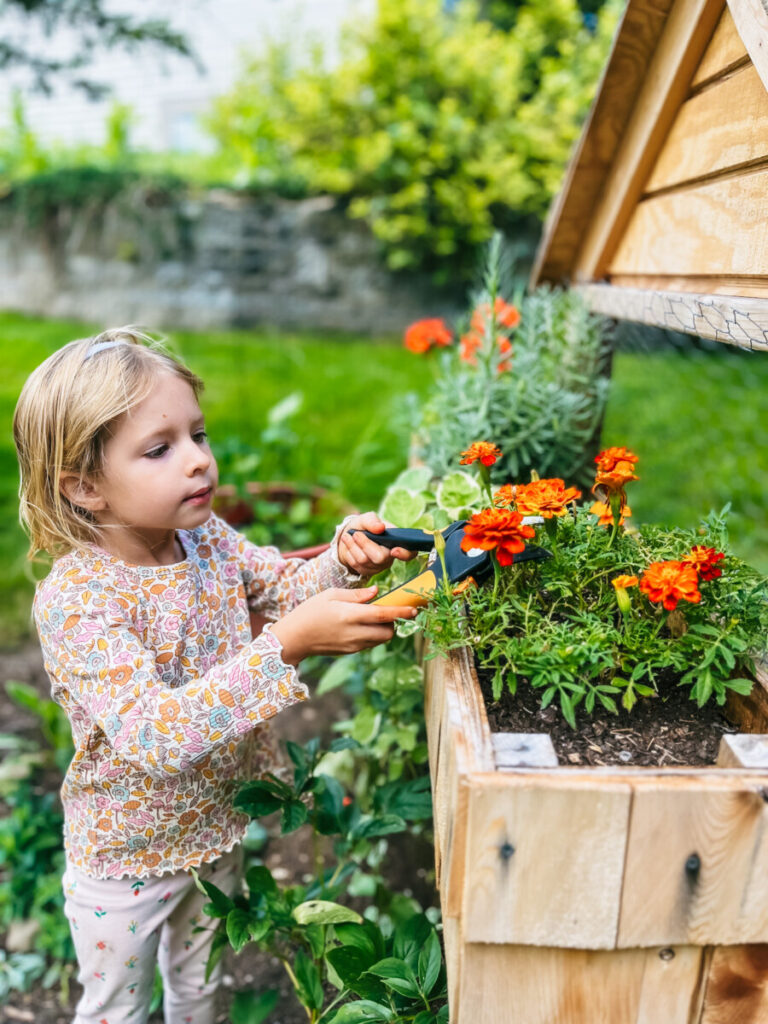
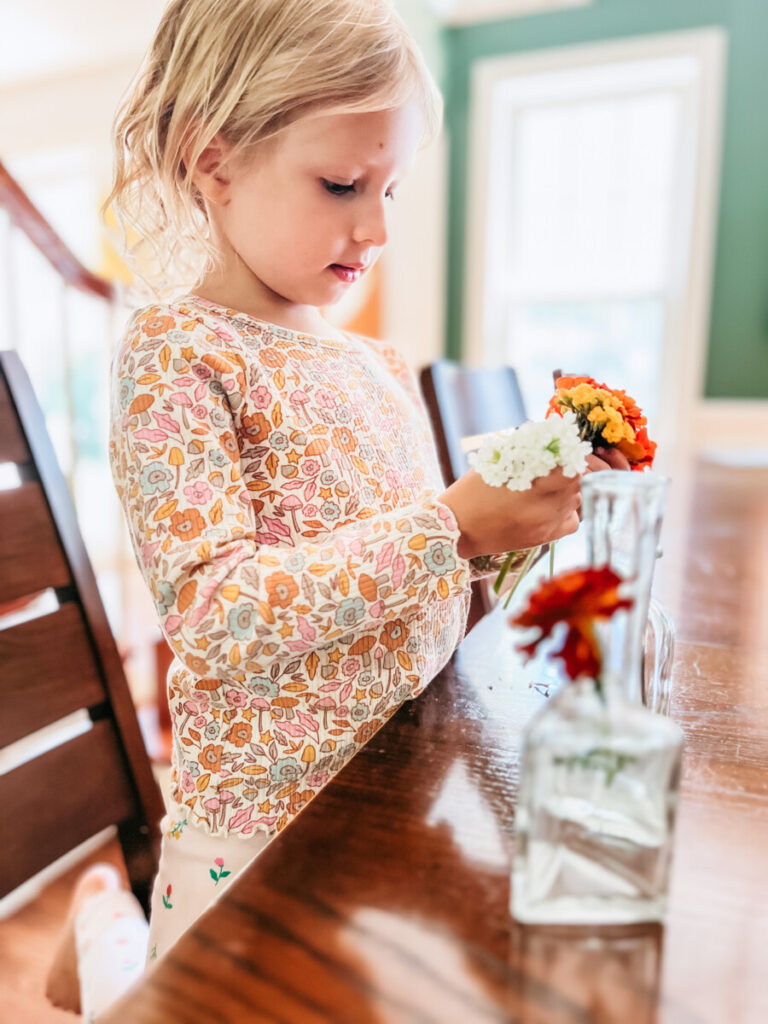
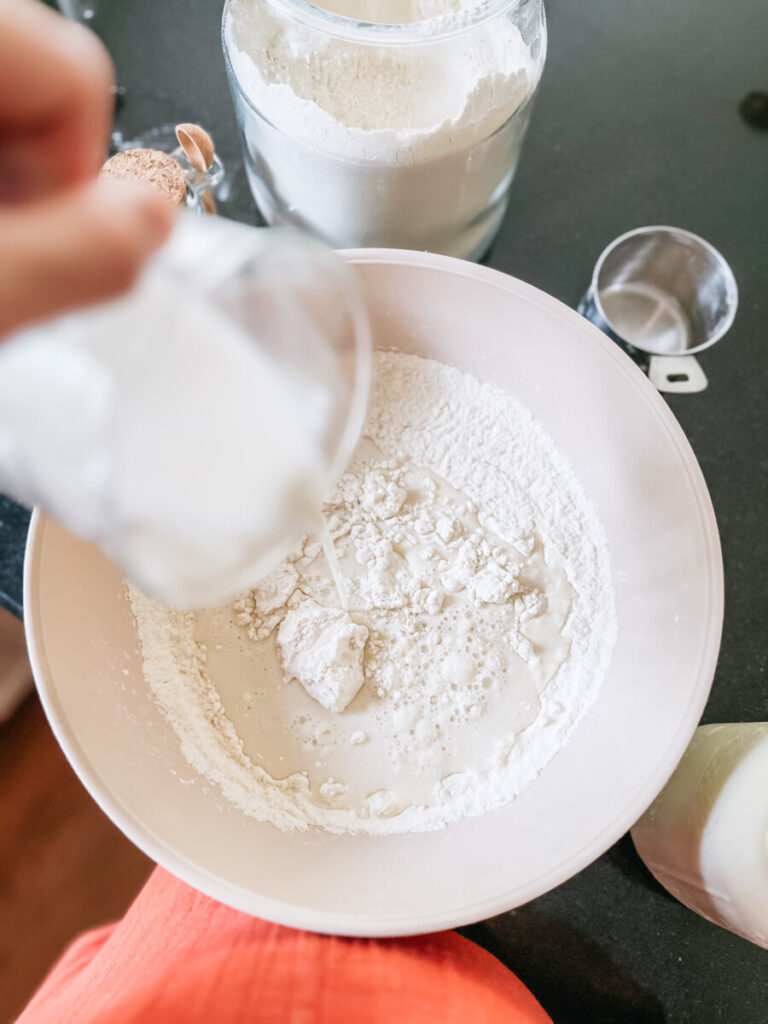
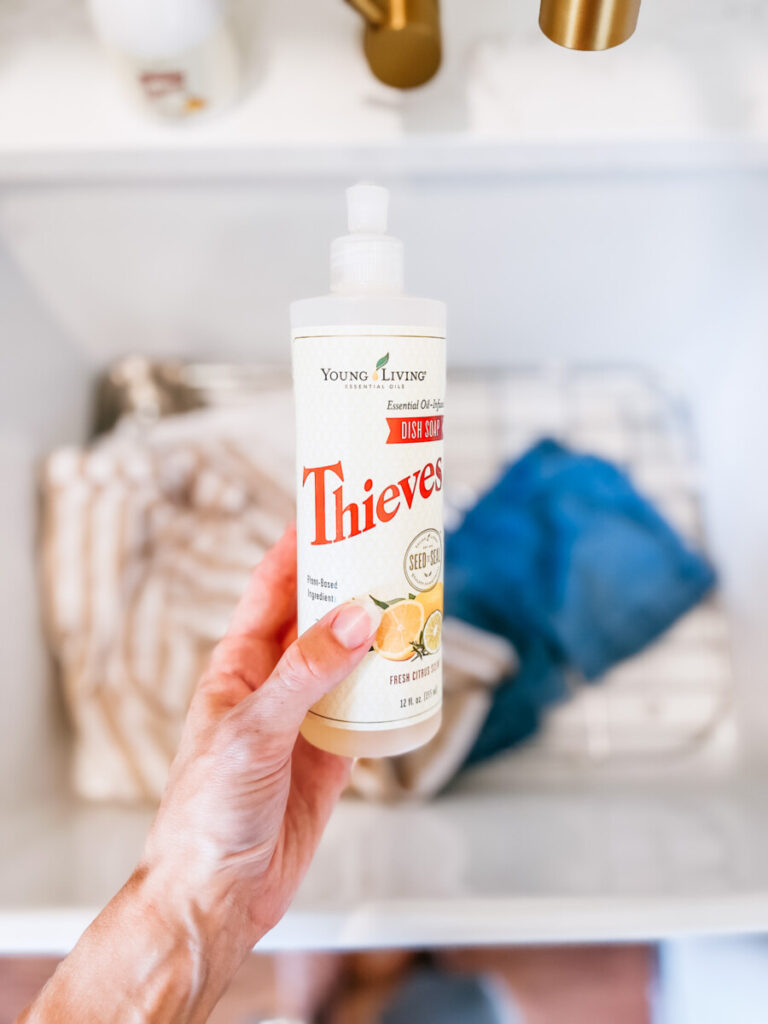
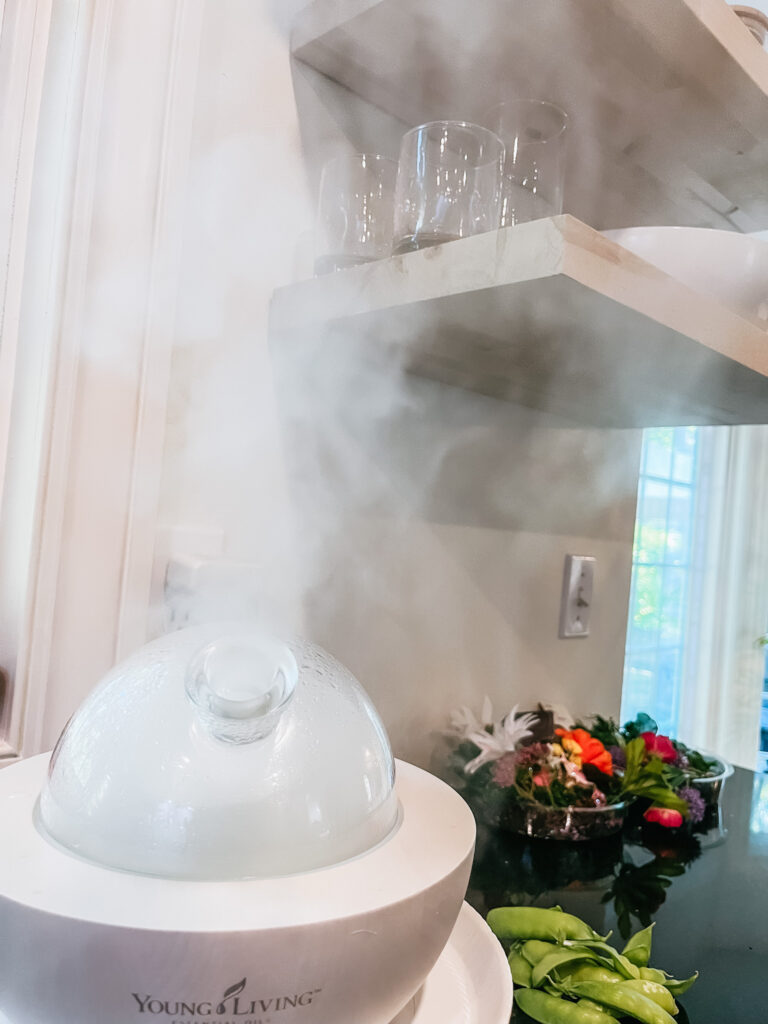
What do you want to start with? Here are a few of my suggestions, which can work wherever you’re living, with varying income levels and different seasons of life.
Food: Think about and plan simple meals, become good at 1-2 staples (an easy, nourishing soup could be one of them), find 1-2 cookbooks or authors you like (they will mostly likely use the same ingredients so it’s great because your kitchen will already be stocked with the ingredients most recipes will need), attempt making sourdough, always have staples on hand or learn how to make them. Try drying out your own herbs, make bone broth or chicken stock, dressings, salsas and sauces. And then look into outsourcing for milk, eggs and meats through a local farm.
Gardening (veggies & flowers): What’s your favorite vegetable? Grow that. Use a raised garden bed if you or your neighbors spray their lawns with chemicals, and if you don’t have any land start in large pots. There are too many books and blogs out there stocked with gardening tips and tricks, so begin by doing some research and just try! I’m still learning with flowers, but this past spring I started small and you can too, plant some bulbs this fall or wait until spring to add life to your home. And for both vegetables and flowers, there are community gardens, farmers markets and the like — look into what your town or city offers.
Cleaning: I didn’t hit on this much, but swapping cleaning supplies and becoming a good ole fashioned gatekeeper of your home will enhance your life and health in more ways than you can even imagine. Learn how to clean and care for the baseboards of your home, make your own bleach, swap dryer sheets with organic dryer balls and have a cleaning schedule. Fall in love with your home, so much that you desire her to be clean and tidy and beautiful. Here are a few recipes to start with.
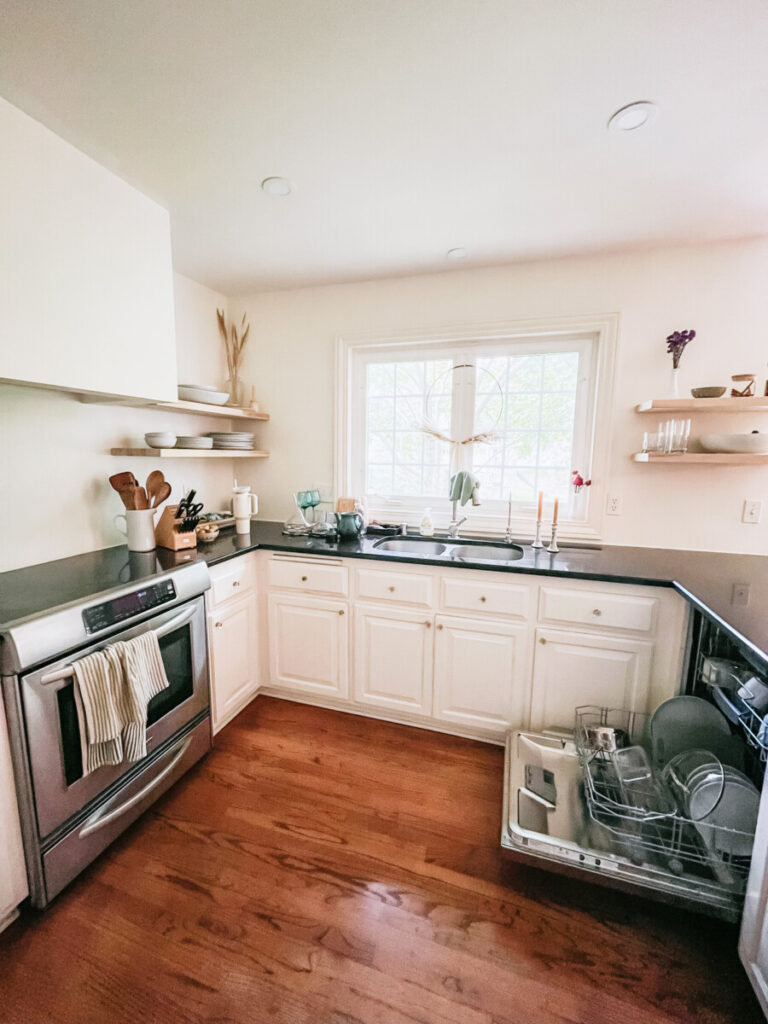
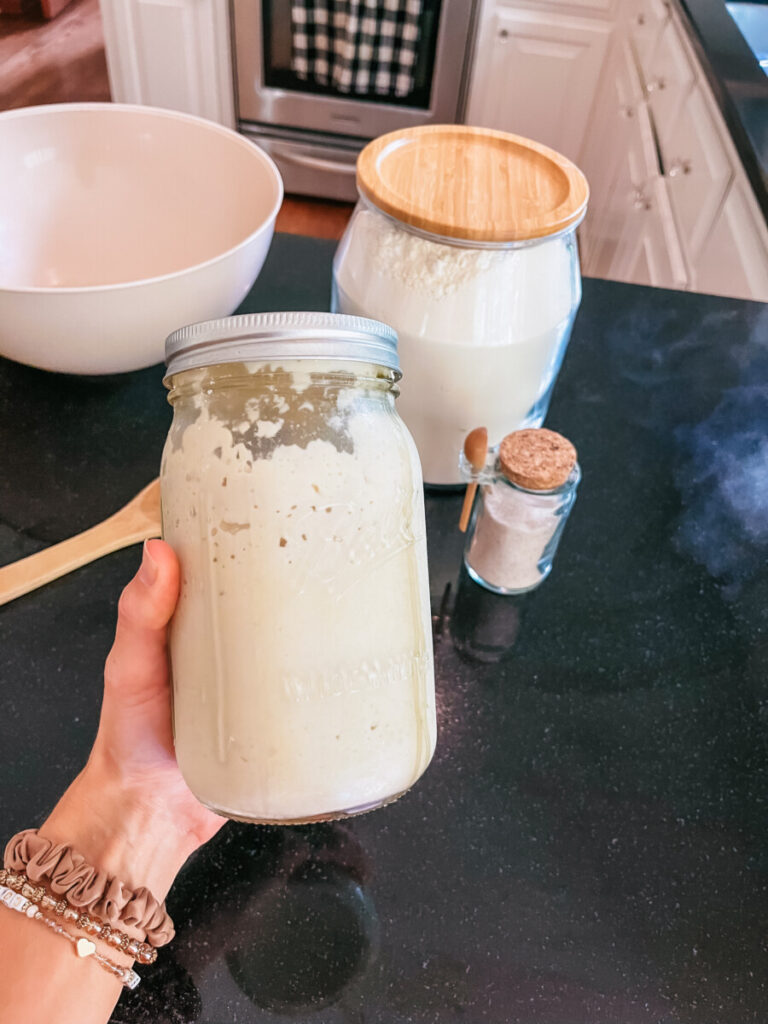
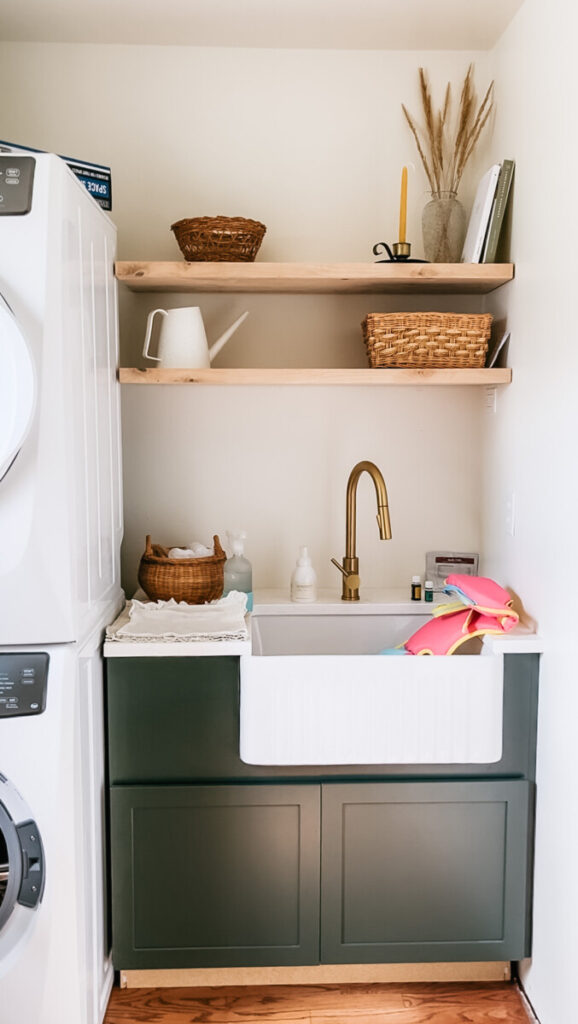
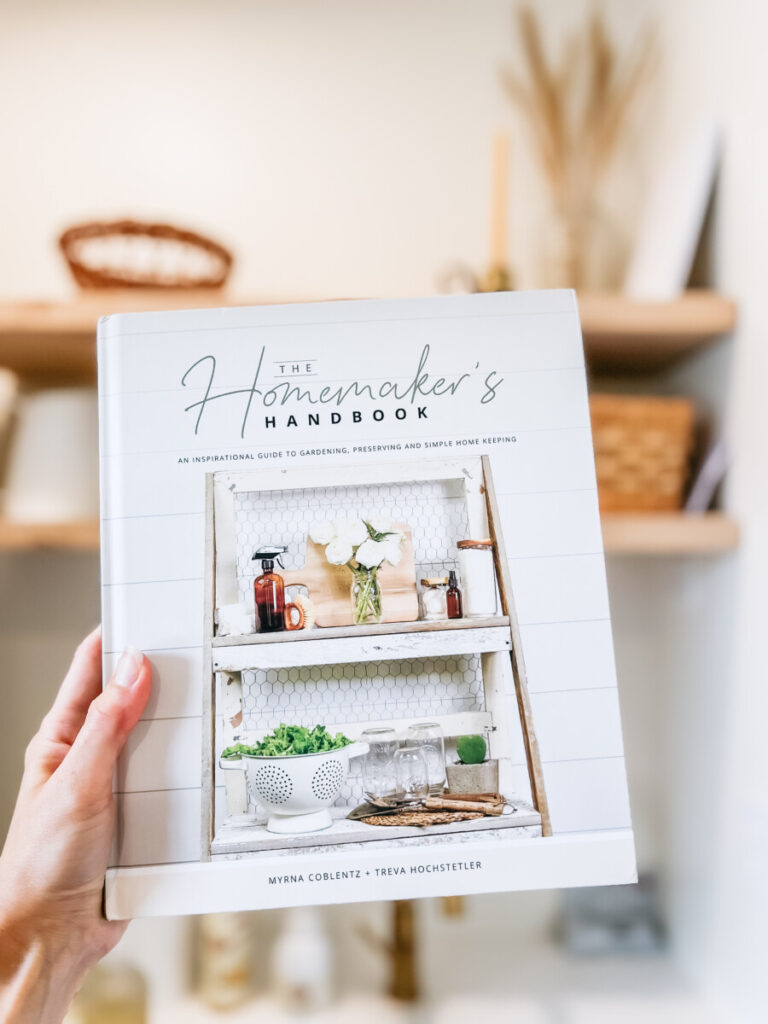
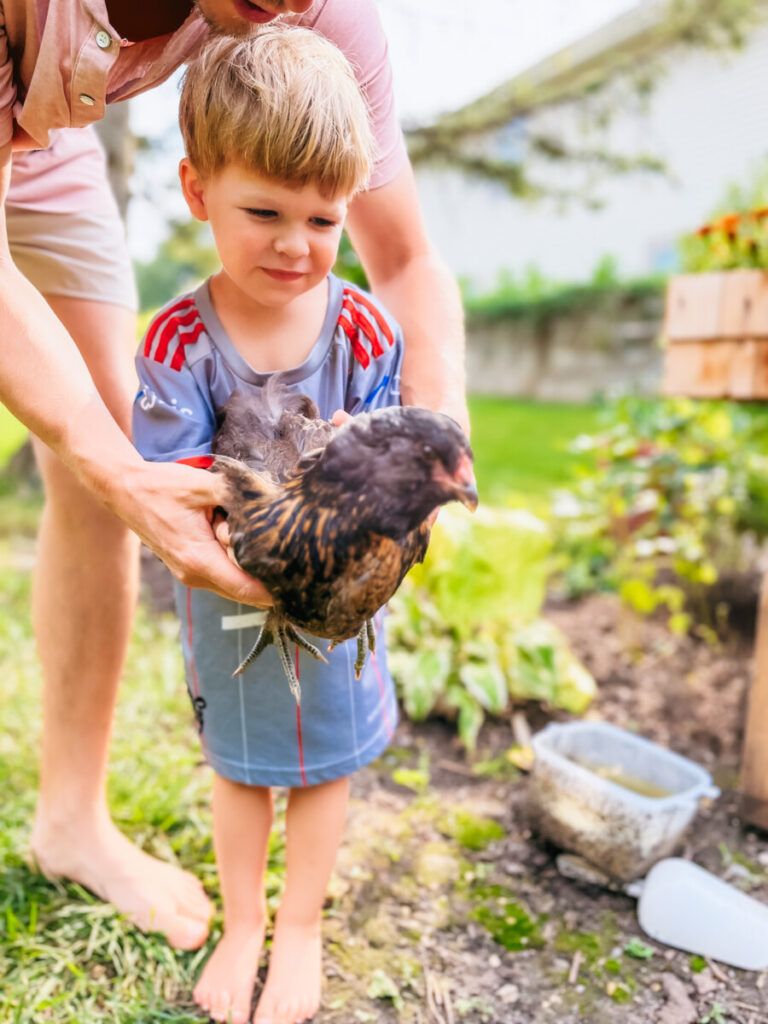
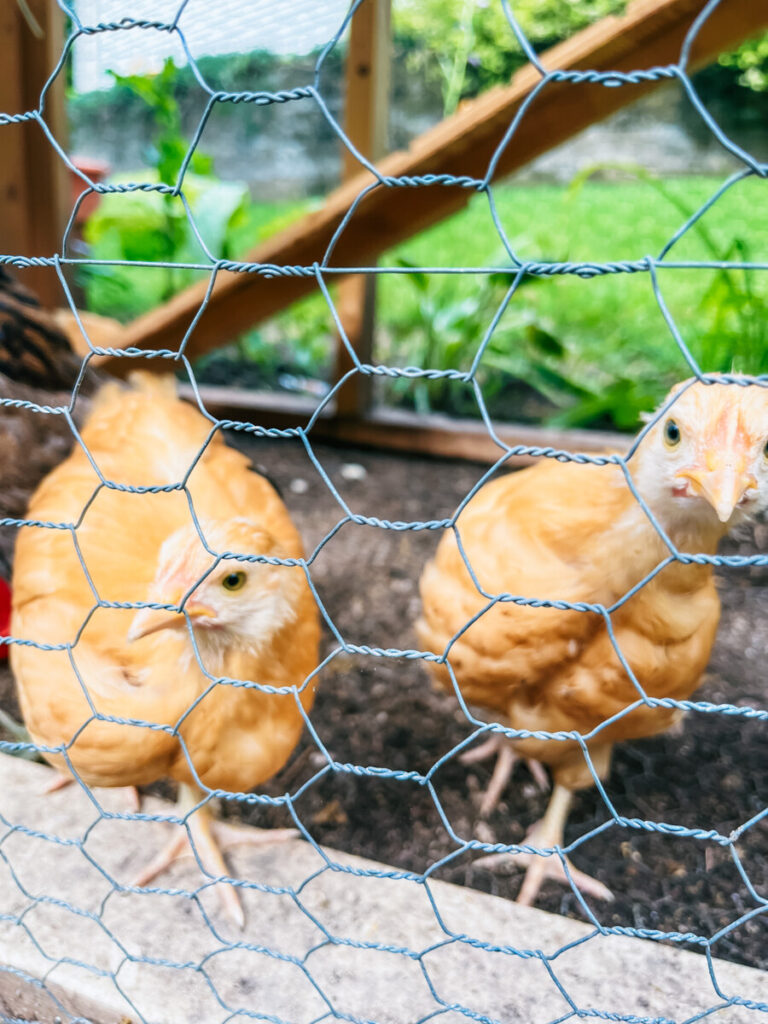
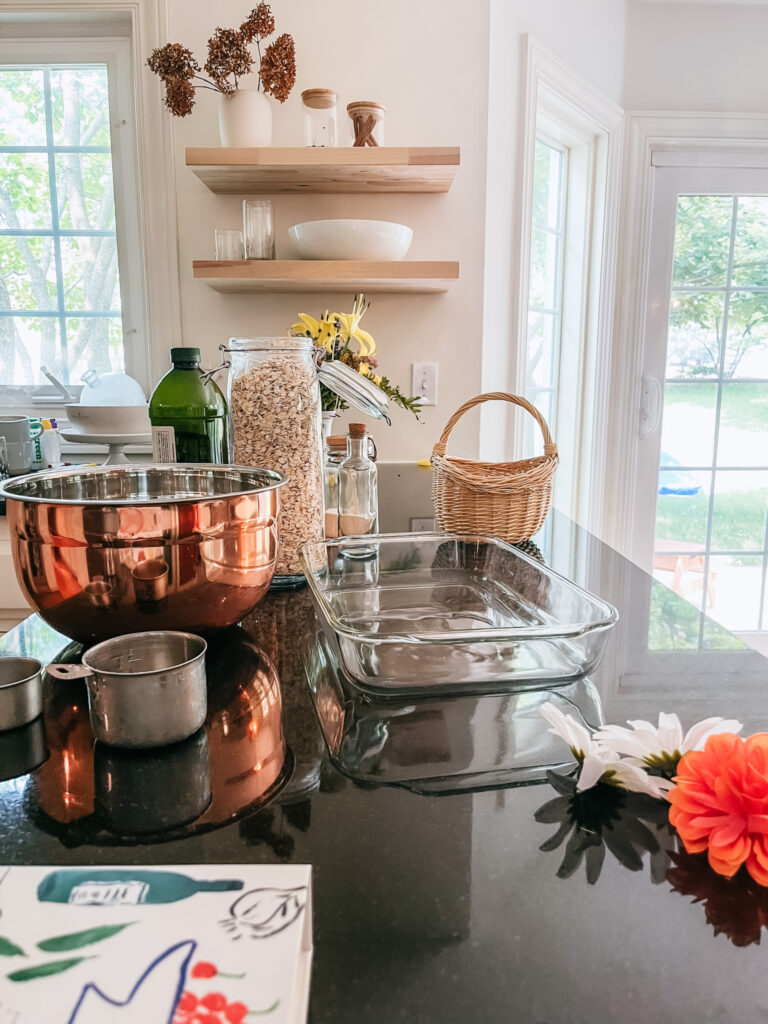
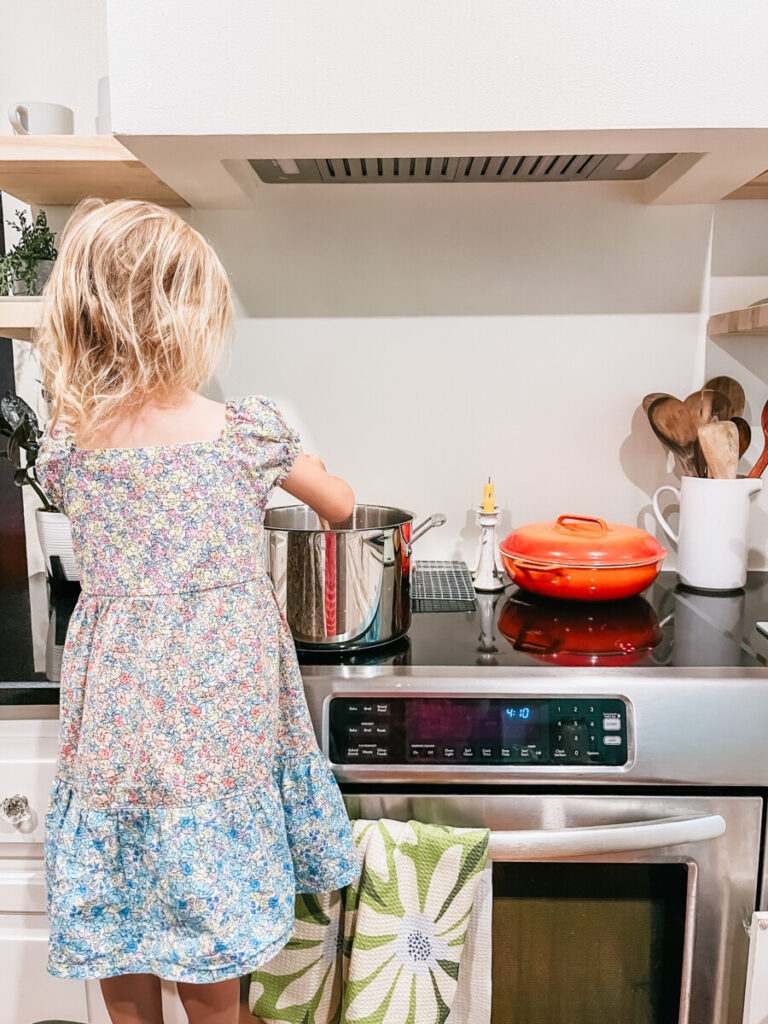
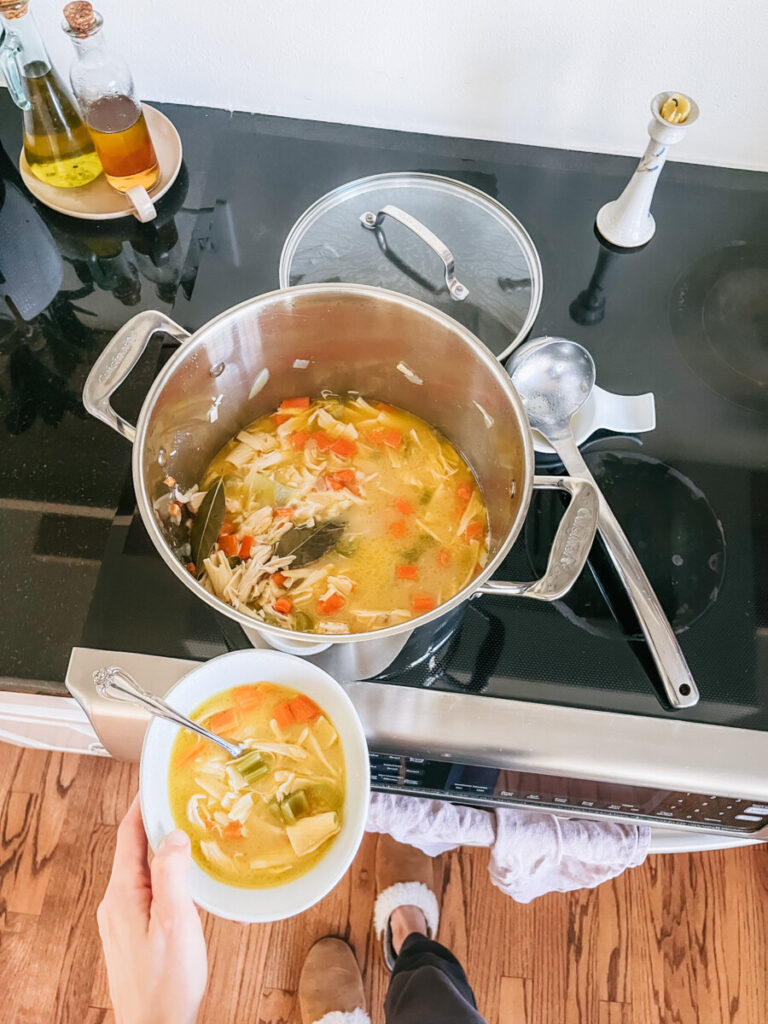
When it’s broken down, this lifestyle is simple although it does take time to learn and try new things, it costs more than what you’re able to financially invest and it’s not totally predictable. But it’s simple and it’s doable and so worth it.
I hope this was encouraging and insightful. I’d love to hear your dreams, comment on this post or get connected with me. And bounce around my blogs for recipes and more on the homesteading lifestyle.